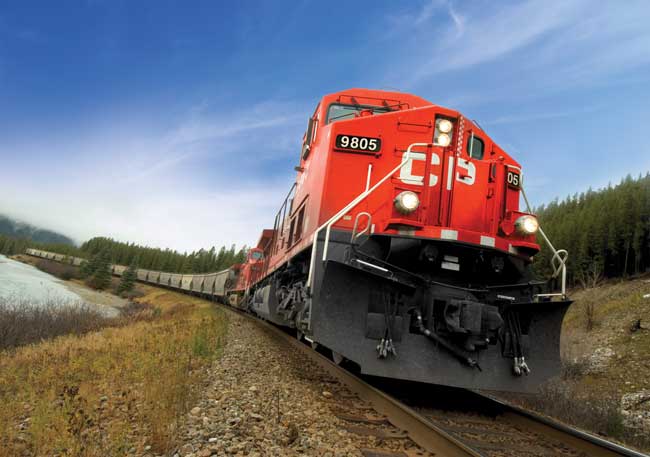
Privacy battle brewing over use of voice, video recorders to prevent rail accidents
by Canadian Manufacturing.com Staff

TSB calls for wider use of recorders in locomotives, but rail workers say move could lead to "unparalleled" corporate intrusion into the workplace

CP Rail says not allowing LVVR technology to be used proactively is “like giving highway police officers radar guns but not permitting them to hand out speeding tickets. PHOTO: CP
GATINEAU, Que.—Stakeholders across Canada’s railway industry are set to clash over the use of voice and video recorders in locomotive cabs in trains across the country.
Earlier this week, Canada’s Transportation Safety Board (TSB) released a report calling for expanded use of locomotive voice and video recorders (LVVR), prompting a statement of support from the Canadian Pacific Railway and criticism from Teamsters Canada Rail Conference (TCRC), which represents some 12,000 workers in Canada’s rail industry.
The study—which will have no legislative impact unless Minister of Transportation Marc Garneau acts on it—found greater use of recorders will “enhance safety and provide a better understanding and assessment of operational and human factors within the locomotive cab.” In addition to being useful after an accident has occurred, the TSB thinks railway companies could use the technology to take pro-active measures to prevent incidents from occurring in the first place.
While all sides can agree on after-the-fact use to assess accidents, the Teamsters union is strongly opposed to allowing rail companies to see or listen to the recordings—something it says raises privacy concerns and employees’ rights issues.
“The reality is that rail companies would use these recordings arbitrarily and that the already negative relations that prevail in the industry worsen considerably,” Doug Finnson, president of the TCRC, said. “It’s a sword of Damocles that we don’t need given the already acrimonious relations that prevail between certain carriers and their workers.”
Meanwhile, CP says the need to prevent accidents “outweighs” these concerns.
“This technology needs to be implemented, but it needs to be used in a way that reinforces sound safety practices and rewards safe behaviours,” Keith Creel, the company’s president and COO, said. “On one hand, the TSB is saying yes to accident prevention but on the other, it refuses to allow the railroad to take appropriate corrective action, including applying disciplinary consequences, in the event of unsafe behaviours.”
The rail firm added that it is prepared to implement procedures that would ensure access to the recordings is “tightly controlled and only used within strict guidelines.”
Facing pressure from both industry and workers, the report will now find its way to Garneau’s desk. The TSB is calling on the minister to take “concrete” action to expand the use of LVVR technology by introducing the necessary legislation as soon as possible.